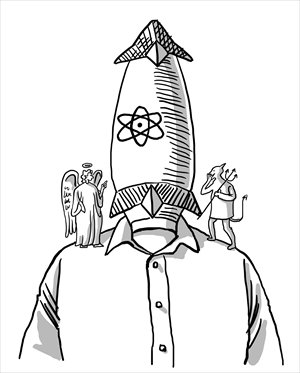China's choice is to unleash or reel in a nuclear North Korea

Since North Korea crossed the point of no return with its third nuclear test, attention is again turning to China, the North's only major ally and its main economic patron.
Actually, Beijing's stance against Pyongyang since its approval of the UN Security Council resolution last month has shown how seriously it regards the consequences of North Korea's nuclear brinkmanship.
Despite strong objections from Beijing, Pyongyang again had its way. Well, there's no use crying over spilt milk. However, the situation is very serious in that the North's open act of defiance to the Chinese could be a tipping point to shake regional security, including the Sino-North Korean alliance.
It is unclear if Pyongyang tested a plutonium bomb last week as in the first two tests or a highly enriched uranium-based weapon, but the aftereffects of the test have been amplified.
If North Korea develops a nuclear weapon that can be mounted on a missile, the Sino-North Korean alliance would enter a new phase in its political dynamics.
From the perspective of alliance politics, this means a considerable loss of Chinese leverage over the North, which could lead to Pyongyang having greater autonomy from Beijing.
A nuclear-armed North Korea would no longer need a bigger ally at least in military terms, because Pyongyang sees a nuclear option as escaping the traditional "big brother" shadow of China.
In this case, sharing a "common threat" perception against the US would not be a decisive variable in the Sino-North Korean alliance, because Pyongyang would prefer to deal directly with Washington by going over Beijing's head.
As it did in the Sino-Soviet dispute in the Cold War era, the North could also walk a fine line between Sino-US strategic relations.
Of course, China has more economic leverage over North Korea than any other country.
Actually, if China decreases aid or trade with North Korea, its impoverished neighbor would suffer a huge blow. Everyone knows that the only penalties that would truly hurt the North would come from China.
However, for China, economic leverage is also a double-edged sword, because too strong a punishment could lead to a vicious cycle in which Pyongyang objects strenuously and the resulting tensions make a solution more difficult.
Furthermore, Pyongyang's economic disaster could lead to widespread unease in Northeast China. Pyongyang appears to be betting that even a third test would not change China's delicate attitude.
Ever since the end of the Korean War (1950-53), North Korea has dealt with any signs of interference from China by sacking pro-Beijing officials within the regime.
As a result, despite issuing warnings, China has abstained from wielding its muscle in sensitive issues that could trigger a strong backlash from Pyongyang, because it cannot neglect Pyongyang's geostrategic value.
It has therefore been relatively passive in preventing Pyongyang from developing nuclear weapons and has preferred to maintain stability.
However, if the North really becomes capable of mounting a nuclear warhead on an intercontinental ballistic missile, China's balance sheet between alliance interest and strategic loss could be reversed.
The advent of a nuclear-armed North Korea would have a crippling impact on security order in Northeast Asia.
If the North adopts a strategy of raising the number of nuclear weapons and striking a "balance of terror" by matching nuclear weapons of the US with its own, South Korea and Japan will find themselves marginalized.
They will scramble to bolster their defense capabilities, while depending more heavily on the US-led nuclear umbrella and missile defense system to keep a nuclear-armed North Korea and China in check.
That is the last thing Beijing wants on its doorstep. Clearly China is being tested by Pyongyang's pugnacious probes.
Probably the Chinese leadership is now seriously poring over the measures to take, weighing strategic losses and alliance advantages, while North Korea is expected to take further action after checking the responses of the US and China.
Many experts say that China is likely to resist tough new measures again for fear they could lead to further retaliation by the North Korean leadership.
However, it is not for problem solving, but a reproduction of vicious cycle. Instead of calling on "all sides" to remain calm, it is high time for Beijing to be more proactive and show real initiative.
The author is a professor with the Asiatic Research Institute of Korea University. opinion@globaltimes.com.cn